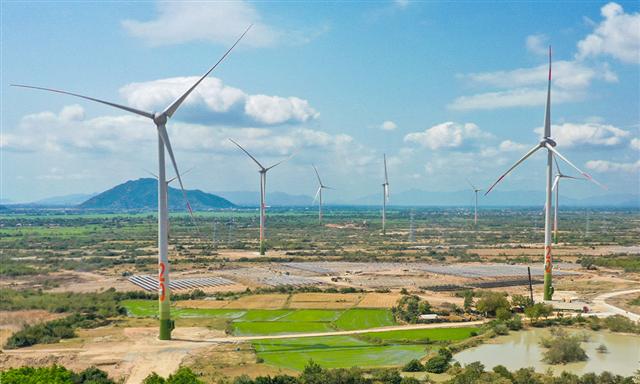Trade union urges tapioca factory to boost output
Trade union urges tapioca factory to boost output
The Lao Federation of Trade Unions has urged the Lao Indochina Group Public Company's tapioca factory to increase its production capacity to more than the 450 tonnes per day the company has set.
“We have noted that farmers' cassava production is growing each year,” said Federation President Mr Khamla Lorlonsy during a visit to the factory in Pakngum district, Vientiane, on Friday, the 57th anniversary of the union.
“I can see there are many cassava trucks parked on the road waiting to unload their crops and this is what I am worried about now,” Mr Khamla said.
Mr Khamla was concerned because he has seen that in some countries angry farmers have unloaded their crops on the road in protest at delays on the part of buyers or factories in receiving their produce.
“But I think that in Laos there will not be such an issue because we see the factory is expanding its production output and the increased capacity will help match the increased quantity of cassava supplied by the farmers,” he said.
The company CEO, Ms Sudsada Phiasoukha, agreed that the plant capacity expansion project was proceeding in order to prepare for the increasing quantity of cassava being supplied to the plant each year.
Currently the tapioca plant has an average production capacity of about 300 tonnes, using 1,200 tonnes of raw cassava per day.
“Once the expansion is completed, which is expected to be on February 15, we will immediately start a test run of tapioca production,” Ms Sudsada said.
By then the factory will be able to process between 1,500 and 1,800 tonnes of raw cassava each day and “we can produce about 450 tonnes of powder per day,” she said.
“This will help reduce the time the cassava trucks have to wait before unloading which should lessen the problem of them having to wait in line for long periods.”
Mr Khamla also urged the company to continue paying attention to labour security and welfare policies such as healthcare payments for all staff.
Currently the plant has 335 employees, including 11 Chinese technicians, and each employee earns at least 1,450,000 kip. They also get free meals and accommodation.
Ms Sudsada said the company provides 3 million kip if an employee requires a hospital stay, 5 million kip if an employee has an accident, and 12 million kip in the event of a fatality.
There are now 13,500 hectares of cassava under cultivation, farmed by 4,800 families from 271 villages across 14 districts in Vientiane, and Borikhamxay and Vientiane provinces.
Early last year, the company had 7,689 hectares under cassava cultivation, providing employment for over 2,713 families in 171 villages.
In 2008-2009, it had only 2,000 hectares of cassava farms tended to by just 400 families from 46 villages.
vientiane times














